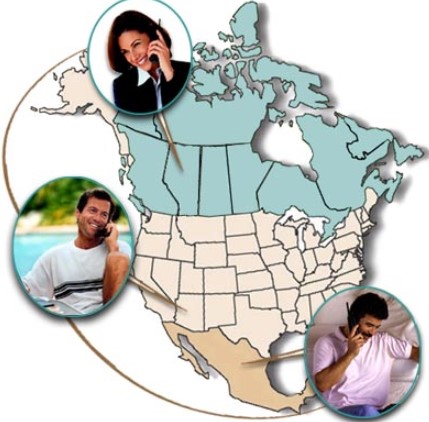
Stay positive: good news on COVID-19
 1. Of about 80,000 people sick from COVID-19 in China, more than 70% have recovered and been discharged from hospitals. Per the World Health Organization last week, “Of the 80,000 reported COVID-19 cases in China, more than 70% have recovered and been discharged.”
1. Of about 80,000 people sick from COVID-19 in China, more than 70% have recovered and been discharged from hospitals. Per the World Health Organization last week, “Of the 80,000 reported COVID-19 cases in China, more than 70% have recovered and been discharged.”
2. Scientists have figured out how the novel coronavirus breaks into human cells, which will help significantly in developing treatments. After scientists revealed the first picture of how the novel coronavirus binds with human respiratory cells to produce more viruses, researchers in China have solidified images all the way down to the level of the atoms at the binding points, according to Live Science. With this news, understanding how the virus enters cells will significantly aid researchers in finding drugs and vaccines to fight the virus.
3. Due to high levels of self-quarantine, Codogno, one of the two coronavirus clusters in Italy, has reported significantly fewer infections per day compared to 35 cases per day at the beginning of the outbreak, just five new infections were announced last week by Codogno’s mayor, Francesco Passerini, according to the U.S. News and World Report.
“It is a war. It is a war, but we have every possibility of winning,” Passerini said. “Unlike with our grandfathers, who went physically into battle for our freedom, we are being required to show responsibility — responsibility and calm.”
4. Scientists in Canada have made massive breakthroughs in an effort to develop a vaccine. A team of Canadian scientists has finally isolated and grown copies of the coronavirus, which may now help scientists study the pathogen to develop better testing, treatments, vaccines, and gain a better understanding of its biology, the team said in a statement alongside the New York Post.
5. China is testing five different vaccine options, claiming it could have a vaccine ready by next month. Eight different institutes in China are working on five different inoculations to battle the novel coronavirus, according to the South China Morning Post.
“According to our estimates, we are hopeful that in April some of the vaccines will enter clinical research or be of use in emergency situations,” said Zheng Zhongwei, director of the National Health Commission’s Science and Technology Development Center.
While it’s true that it would take at least 12 to 18 months to provide a safe vaccine to general public, under Chinese law, they could be released sooner for urgent use in a major public health emergency, provided the benefits outweigh the risks, noted the New York Post.
6. Vaccination trials in the U.S. are already underway. A trial of Moderna’s vaccine has already kickstarted at Kaiser Permanente under Washington’s Health  Research Institute in Seattle, of which will hopefully confirm the safety of the vaccine prior to mass production.
Research Institute in Seattle, of which will hopefully confirm the safety of the vaccine prior to mass production.
7. A team of infectious disease experts calculated the fatality rate of Wuhan’s coronavirus outbreak is about 1.4%, drastically lower than earlier estimates. While this estimate and data applies directly to Wuhan, where the novel coronavirus outbreak began, it offers a hopeful guide to the rest of the world as it notes significantly lower estimate of earlier stats around 3%. A full breakdown of the data can be found at Stat News.
8. Distilleries across the U.S. are making their own hand sanitizers and giving it away for free. Perhaps many Americans can calm down on the panic buying, as according to the Associated Press, distilleries across the country are using high-proof alcohol to make hand sanitizer, and divvying it out for free, or by donation to combat the novel coronavirus.
9. Air pollution has plummeted in cities with high numbers of quarantined individuals, Venice’s waters are running clear. Analysts from the Washington Post have noted a drastic decrease in major greenhouses gases over Europe as individuals self-quarantine and cars stay parked at home. While it’s little comfort to a country ravaged by the novel coronavirus, it highlights the impact humans can make on the environment.
“I expect pollution to drop even further as the particles in the atmosphere get either dispersed or absorbed,” Emanuele Massetti, an expert on the economics of climate change at Georgia Tech University who has studied Italy’s climate policies, told the Washington Post. “In a few days, they will enjoy the cleanest air ever in northern Italy.”
10. A Johns Hopkins researcher has claimed antibodies from recovered coronavirus patients could help protect people at risk. A treatment that can be made readily available under urgent circumstances, a team from Johns Hopkins alongside many other researchers are studying whether or not the antibodies of those recovered from the coronavirus could help protect at-risk humans from the virus.
“Deployment of this option requires no research or development,” immunologist Arturo Casadevall told Science Alert. “It could be deployed within a couple of weeks since it relies on standard blood-banking practices.” Not to mention, a Japanese pharmaceutical company is nearing approval of the treatment.
11. South Korea recoveries are starting to outnumber new infections. Facing the largest epidemic outside of China, South Korea reported more recoveries from the coronavirus than new infections on Friday for the first time since its outbreak emerged in January, as a downward trend in daily cases raised hopes that Asia’s biggest epidemic outside China may be slowing, according to India Today.
 12. China is getting its feet back on the ground, opening parks and athletics, loosening travel restrictions. As the novel coronavirus comes under control in China, parks and tourist attractions have reopened across the country, alongside loosened travel restrictions.
12. China is getting its feet back on the ground, opening parks and athletics, loosening travel restrictions. As the novel coronavirus comes under control in China, parks and tourist attractions have reopened across the country, alongside loosened travel restrictions.
“The National Health Commission said on Thursday that the outbreak had passed its peak, and the figures appear to support its claim,” said the South China Morning Post. “On Friday, authorities in mainland China reported just 11 new Covid-19 cases, of which four were in Hubei.” According to ESPN, even professional basketball has reemerged in Asia.
13. China has also closed its last coronavirus hospital, not enough new cases to support them. China has shut down all 16 temporary coronavirus hospitals in Wuhan as cases of coronavirus have begun to dwindle. “The final group of 49 patients walked out of the Wuchang temporary hospital in the capital of Hubei province on Tuesday afternoon to cheers,” according to the Xinhua news agency.
14. Australian researchers are in the midst of testing two drugs as cures to the virus. Scientists in Australia claim to have identified how the body’s immune system fights the novel coronavirus.
Published in Nature Medicine journal on Tuesday, the research shows people are recovering from the virus like they would from the flu. “This [discovery] is important because it is the first time where we are really understanding how our immune system fights novel coronavirus,” study co-author Prof Katherine Kedzierska told BBC News.
15. Numerous businesses have stepped up to solve the crisis. Restaurants, sports, and businesses are all stepping up to combat the community effects of the novel coronavirus.
The sports world is raising money for stadium employees, Uber Eats is divvying out free delivery to help independent restaurants, professional soccer players are entertaining viewers with a FIFA tournament, restaurants are doling out free food to those in need, and Bill Gates is funneling out millions of dollars to speed up development of a coronavirus treatment, to name just a few out of dozens.
16. Apple, Starbucks reopening all stores in China. While stores and restaurants across the U.S. have closed up shop, both Apple and Starbucks have reopened all of their stores in China as the novel coronavirus spread slows across the country.
17. MetroHealthMedical Center has developed a coronavirus test that gives results in hours, not days. “MetroHealth Medical Center becomes the first hospital in the state that can now test COVID-19 samples at its laboratory with results available after just two hours,” released News 5 Cleveland. While supplies are limited, it notes a significant step toward expansive testing of the novel coronavirus.
18. Scientists in Israel have also noted the potential to announce development of a coronavirus vaccine within weeks. Israeli scientists are nearing development of
 the first vaccine to combat the novel coronavirus, according to Science and Technology Minister Ofir Akunis. The vaccine could be ready within a few weeks and available in 90 days, according to a release.
the first vaccine to combat the novel coronavirus, according to Science and Technology Minister Ofir Akunis. The vaccine could be ready within a few weeks and available in 90 days, according to a release.
19. A San Diego biotech company is developing a coronavirus vaccine in collaboration with Duke University and National University of Singapore. As the race to develop a vaccine for the novel coronavirus continues globally, the San Diego-based biotech company, Arcturus Therapeutics, is working on creating one at its lab.
The company is working alongside Duke NUS-Medical School, a partnership between Duke University and the National University of Singapore. While developing a vaccine that works hasn’t yet proven impossible, “The major challenge with vaccines is the size of the dose and the feasibility of manufacturing,” President and CEO, Joseph Payne, told CBS8.
20. A Japanese flu drug has proven effective in treating the novel coronavirus. Zhang Xinmin, an official at China’s science and technology ministry, said favipiravir, developed by a subsidiary of Fujifilm, had produced encouraging outcomes in clinical trials in Wuhan and Shenzhen involving 340 patients, according to The Guardian. “It has a high degree of safety and is clearly effective in treatment,” Zhang told reporters on Tuesday.
21. China has reported just one new domestic coronavirus infection for a second day in a row. “For the second consecutive day there was only one more fresh infection in Wuhan, the central city where the virus first emerged late last year,” said the National Health Commission. New cases in surrounding Hubei province have now been in the single digits for the past seven days, down from a peak of several thousand per day in early February, said Daily Mail.
22. Communities are coming together to help their neighbors. Neighbors across the country are stepping up to make grocery runs for those who can’t leave their homes. Local services have also reached out to the Seattle community to encourage those in need of help, to utilize the opportunities available to them.
23. A 103-year-old Chinese grandmother has made a full recovery from COVID-19. After being treated for less than a week, this grandma is going for the gold as the oldest coronavirus patient to recover in China, and motivating elderly across the globe to retain hope.
By: Christina Ausley, Seattle PI



 In response to COVID-19 restrictions I needed to find a way to continue helping my clients but to do it in the safest way possible for them and for myself.
In response to COVID-19 restrictions I needed to find a way to continue helping my clients but to do it in the safest way possible for them and for myself.








